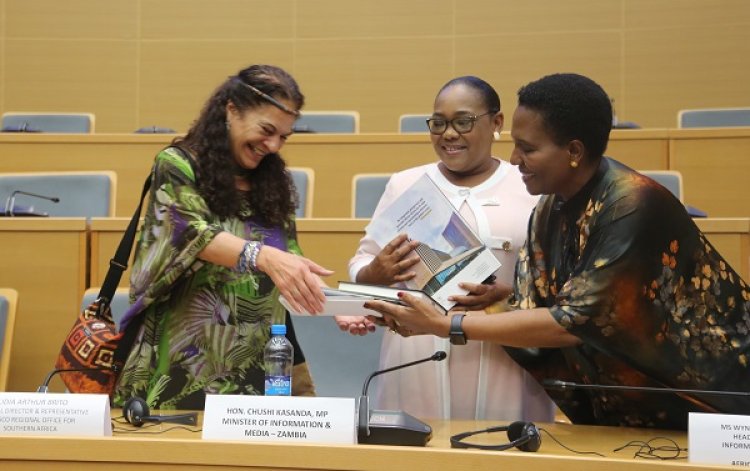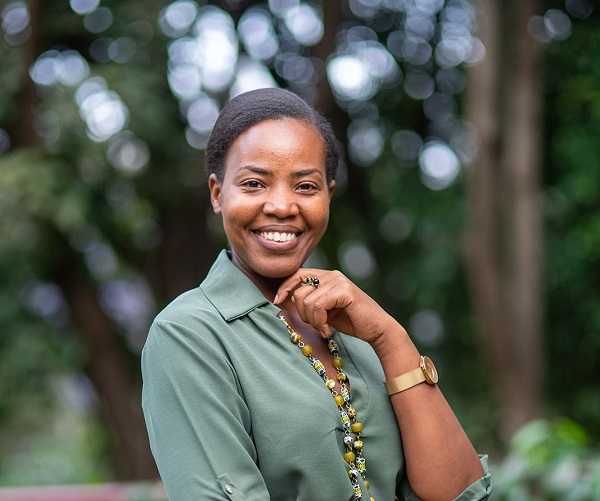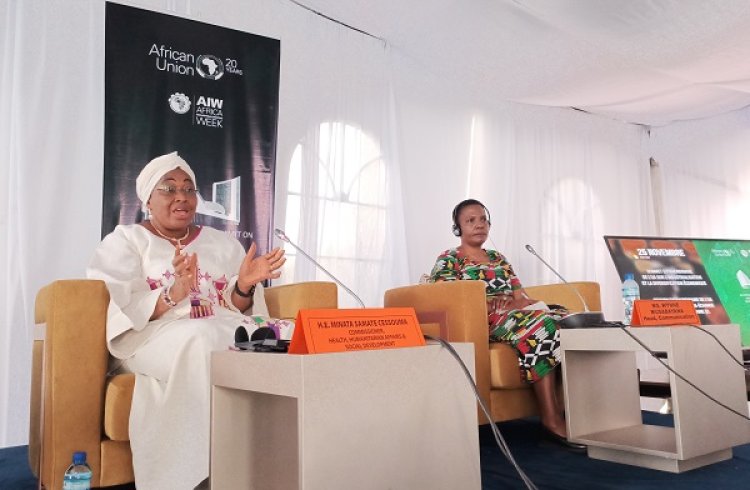Journalists facing legal threats or prosecuted because of their work anywhere in Africa will be granted free legal service when the newly established Pan-African Media Lawyers Union (PALU) starts its work in the near future.
This is so far one of the key outcomes of the engagements that have been going on among media stakeholders, journalists’ associations and the legal fraternity on the African continent following a resolution adopted at the inaugural Africa Media Convention held in Lusaka, Zambia in May this year to, among other things, provide legal representation to journalists.
Also read: Africa: Media fraternity key asks to Govts on freedoms
NewsPaper Africa‘s Johnson Kanamugire talked to Lydia Gachungi, Regional Adviser on safety of journalists at the UNESCO Liaison Office to the African Union and UN Economic Commission for Africa (UNECA) on the sidelines of the recently-held journalists’ training on circular economy organised by Africa 21 and partners in Nairobi.
The training also served as an opportunity for the media professionals to contribute their input to the handbook on Disaster Risk Reduction (DRR) for African Journalists, and the Training Manual on Environmental Journalism currently being formulated by UNESCO.
Below are interview excerpts
——–

Most of the issues faced by the media and journalists in Africa were discussed at length at the inaugural Africa Media Convention in Lusaka, Zambia in May with a view of finding ways to address them. What is the status so far?
Since we left Lusaka, remember there was a declaration that outlined the recommendations of what the African media stakeholders wanted to do. So the first thing that we did as UNESCO Liaison Office to the African Union, we convened the committee that was established in Lusaka.
You do recall it was representing the different journalists’ associations, the CSOs, the development partners and the African Union. So the committee was established and the leaders of the committees were elected, and then there have been sub-committees that are focusing on implementation of the recommendations.
There’s a sub-committee that is focusing on the next African Media Convention in in Ghana, there is a sub-committee that is doing the resource mobilization to address the many issues. But besides that, there is also an ongoing assessment on the status of press freedom and the safety of journalists and access to information.
This is using the indicators the Africa media stakeholders put together to assess their own continent on these matters. So the second assessment has just been launched. We hope to have the preliminary report during the next Africa media convention.
We have also done a lot of capacity building. We’ve done a lot of awareness raising, we’ve done a lot of coordination and collaboration and co-creation with our stakeholders to make sure that the recommendations are taken forward.
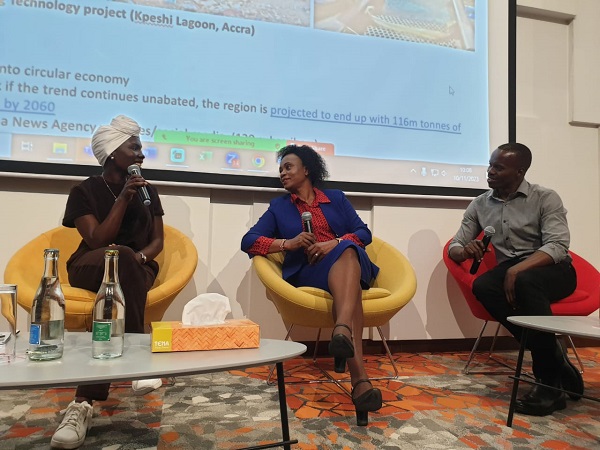
I’ve heard you talk about the arrangement underway to provide legal support to journalists across the African Union member States. How will that work?
In Zambia we did talk about establishing the Pan-African Media Lawyers Union (PALU), a network that brings together the lawyers interested in defending journalists. Since then, the network framework has already been established and PALU is mobilizing the lawyers on the continent and raising awareness on the importance of media law, the importance of protecting journalists and the importance of working together with the media.
So they have formed sub-committees at that level then the journalists’ associations have also organized themselves and they’re doing the mapping of cases that need to be taken to these lawyers, and remember the lawyers network is to deal with them on pro bono basis.
This is the importance of this engagement because the lawyers that are interested in defending the journalists come together, they understand the issues of journalists, they understood where they need to intervene, and then they are giving their services on a pro bono basis.
Also read: Q&A: We still see conspiracy of silence when journalists come under attack
In your view, what difference will the new arrangement make?
Previously, it was very difficult because post COVID-19 the media has really suffered in terms of sustainability, income, and not even just COVID even with the social media being the platforms where many people are getting their news, the mainstream media has really suffered in terms of income.
So many journalists that are working for these media houses or even as freelancers when they face legal challenges, again on top of the challenges they have in terms of income, they don’t have the funding to get a good lawyer even a lawyer to protect them.
So before then journalists were used to a lot of impunity. Why? Because there are no lawyers that you can find for free out there individually just to come and protect a journalist. Now with a new approach, it is going to be different.
If, for example, you are an association and some of your journalists are facing a legal challenge or a legal case you know which lawyer to go for and without charge, not because they don’t want to get the resources, but because there is this agreement between the media and the lawyers that you can come and support us and of course, there is that also that the media gives back to the society.
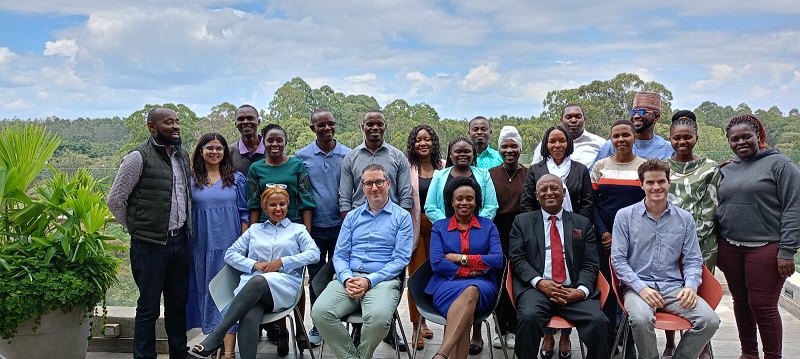
What worries you the most at the moment when you look at the status of journalists’ safety across the continent, and the trend over the years?
My biggest worry being in this space is for sure knowing how important a journalist is and how a democracy cannot thrive, and how the society cannot do without the right information at the right time and from the right sources and information that has been fact checked not just gossip by anybody; knowing how important journalism is and journalists and seeing how journalists are treated like the least of the least in the society, it worries me.
It worries me because as much as they know that in the evening the first thing they do is to switch on the TV or radio on social media to get the latest news, but yet when it comes to the welfare, in terms of sustainability of the media sector, in terms of income for the journalists and in terms of their wellbeing or health, there is not so much that is being done about that.
That’s why for UNESCO it’s a priority. It’s a priority because we recognize how important journalists are and how relevant their work is to the society.
You do engage Governments across Africa on issues of journalists’ safety. What feedback do you get?
The UNESCO Director General has a mandate to call on member states, if a journalist is killed, for example. She has a mandate to condemn and to ask the government to investigate and to report back. So every year we follow up on each case. And we ask the governments to report back to the UNESCO Director General on what has been done and how far the case has gone.
So there is that mechanism for following up on cases and we work with partners on the ground when journalists are facing issues. We gather this information we verify with them, and we make sure that we follow up on those cases.
Also read: Weighing the future of Africa media: Experts’ take


